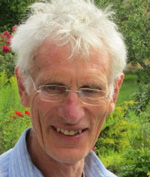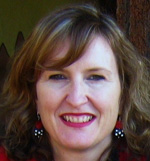APS College of Counselling Psychologists
Keynote speakers
- Professor Y. Barry Chung – United States of America
- Adjunct Associate Professor Jan Grant FAPS - Australia
- Professor Jeremy Holmes – United Kingdom
- Elisabeth Shaw MAPS – Australia
- Dr Monica Thielking MAPS – Australia
- Gerard Webster MAPS – Australia
Professor Y. Barry Chung – United States of America
 Y. Barry Chung received his Ph.D. in counseling psychology from the University of Illinois at Urbana-Champaign. He is currently a Professor in the Department of Counseling and Educational Psychology at Indiana University. His research interests include career development, multicultural counselling, and sexual orientation issues. Dr. Chung has presented and published widely on these topics. He was appointed to nine journal editorial boards internationally, and was Executive Editor of the American Psychological Association (APA) Division 44 Book Series. Dr. Chung was President of the National Career Development Association in 2006-07, as well as President of the Society of Counseling Psychology in 2011-12. He has served on APA’s Board of Educational Affairs (2007-09), Board for the Advancement of Psychology in the Public Interest (2010-12), and Membership Board (2013-15). Dr. Chung is a Fellow of APA (Divisions 17, 44, and 45), Asian American Psychological Association, and National Career Development Association.
Y. Barry Chung received his Ph.D. in counseling psychology from the University of Illinois at Urbana-Champaign. He is currently a Professor in the Department of Counseling and Educational Psychology at Indiana University. His research interests include career development, multicultural counselling, and sexual orientation issues. Dr. Chung has presented and published widely on these topics. He was appointed to nine journal editorial boards internationally, and was Executive Editor of the American Psychological Association (APA) Division 44 Book Series. Dr. Chung was President of the National Career Development Association in 2006-07, as well as President of the Society of Counseling Psychology in 2011-12. He has served on APA’s Board of Educational Affairs (2007-09), Board for the Advancement of Psychology in the Public Interest (2010-12), and Membership Board (2013-15). Dr. Chung is a Fellow of APA (Divisions 17, 44, and 45), Asian American Psychological Association, and National Career Development Association.
Current opportunities and challenges of counseling psychology in the U.S.
Counseling psychology is recognised as a specialty in professional psychology by the American Psychological Association, with its Division 17 (Society of Counseling Psychology) devoted to the advancement of this specialty. A branch of counseling has also evolved as a distinctive profession, as represented by the American Counseling Association. The speaker will discuss the development of these two branches of counseling in the U.S., and how recent developments in professional identities, program accreditation, health care system, and organisational/political dynamics have presented opportunities and challenges for counseling psychology in the U.S. This discussion will include relevant issues such as competency-based training and assessment, model licensing act, integrative health care, and efforts on multiculturalism and social justice advocacy. Future directions are proposed to sustain counseling psychology as a viable discipline that will continue to make a unique and significant contribution to society.
Adjunct Associate Professor Jan Grant FAPS - Australia
 Jan Grant currently works in private practice where she provides psychotherapy for individuals and couples and supervision for counselling psychologists, clinical psychologists and other therapists. From 2001-2013 she was Associate Professor and Programme Director of Counselling Psychology at Curtin University and continues there as an adjunct associate professor. Her research has attracted nationally competitive grants and is currently focussed on therapist development, psychotherapy interventions, and supervision. Findings have been disseminated through international journals, international and national conferences, and workshops. Jan is co-author of Transference and Projection: Mirrors to the Self (Open University Press, 2002) and Couple Therapy: the Self in the Relationship (Palgrave, 2008). She has been recognised for her excellence in teaching and contributions to the field with a number of awards including: Australian Learning and Teaching Council Award-Citation for Outstanding contributions to Student Learning (2010); Curtin University Excellence and Innovation in Teaching award (2008); School of Psychology – Commendation for the top results in postgraduate teaching (2005); Society for Counselling and Psychotherapy Educators – Award for dedicated service and commitment to the field (2006); Student Guild Award for Dissertation Supervision (2000). Jan is currently Deputy Chair of the National Executive – College of Counselling Psychologists and has been on the National Executive for the last seven years.
Jan Grant currently works in private practice where she provides psychotherapy for individuals and couples and supervision for counselling psychologists, clinical psychologists and other therapists. From 2001-2013 she was Associate Professor and Programme Director of Counselling Psychology at Curtin University and continues there as an adjunct associate professor. Her research has attracted nationally competitive grants and is currently focussed on therapist development, psychotherapy interventions, and supervision. Findings have been disseminated through international journals, international and national conferences, and workshops. Jan is co-author of Transference and Projection: Mirrors to the Self (Open University Press, 2002) and Couple Therapy: the Self in the Relationship (Palgrave, 2008). She has been recognised for her excellence in teaching and contributions to the field with a number of awards including: Australian Learning and Teaching Council Award-Citation for Outstanding contributions to Student Learning (2010); Curtin University Excellence and Innovation in Teaching award (2008); School of Psychology – Commendation for the top results in postgraduate teaching (2005); Society for Counselling and Psychotherapy Educators – Award for dedicated service and commitment to the field (2006); Student Guild Award for Dissertation Supervision (2000). Jan is currently Deputy Chair of the National Executive – College of Counselling Psychologists and has been on the National Executive for the last seven years.
Managing difficulties in supervision
Despite the critical importance of clinical supervision in training and ongoing professional development, research shows that many difficulties can occur and that some supervisees can feel harmed by supervision. This presentation provides an overview of existing research findings on the kinds of difficulties that arise in supervision and how supervisors manage such difficulties. In addition, it draws on data from an intensive Australian study of expert supervisors and their supervisees (Grant & Schofield 2012) on the supervisory events supervisors found most difficult and how they approached such difficulties. Major difficulties included the broad domains of: supervisee competence and ethical behaviour, supervisee characteristics, supervisor counter transference, and problems in the supervisory relationship. Supervisors managed these difficulties using four key approaches. A sequence of strategies is outlined and a case study is presented to illustrate the process of effective resolution. The presentation explores the delicate balance between support and challenge in the management of supervisory difficulties.
Professor Jeremy Holmes – United Kingdom
 Professor Jeremy Holmes MD FRCPsych BPC for 35 years worked as Consultant Psychiatrist and Psychotherapist in the NHS. He was Chair of the Psychotherapy Faculty of the Royal College of Psychiatrists 1998-2002. Now partially retired, he has a part-time private practice; set up and now teaches on the Masters/Doctoral psychoanalytic psychotherapy training and research programme at Exeter University, where he is a visiting Professor; and lectures nationally and internationally.
Professor Jeremy Holmes MD FRCPsych BPC for 35 years worked as Consultant Psychiatrist and Psychotherapist in the NHS. He was Chair of the Psychotherapy Faculty of the Royal College of Psychiatrists 1998-2002. Now partially retired, he has a part-time private practice; set up and now teaches on the Masters/Doctoral psychoanalytic psychotherapy training and research programme at Exeter University, where he is a visiting Professor; and lectures nationally and internationally.
He has written over 180 peer reviewed papers and chapters in the field of Attachment Theory and Psychoanalytic Psychotherapy. His many books, translated into seven languages, include best-selling John Bowlby and Attachment Theory (1993/2013 2nd Edition, Routledge), The Oxford Textbook of Psychotherapy (2005, co-editors Glen Gabbard and Judy Beck), Storr’s The Art of Psychotherapy (Taylor & Francis 2012) and Exploring In Security: Towards an Attachment-informed Psychoanalytic Psychotherapy (Routledge 2010) which won the 2010 Canadian Psychological Association Goethe Award. 2013 saw the 6-volume compendium of the 100 most important papers in Attachment (Benchmarks in Psychology: Attachment Theory, SAGE, co-edited with A. Slade).
Literature and the Therapeutic Imagination, and Attachments: Psychiatry, Psychotherapy, Psychoanalysis (both Routledge), are due 2014. He was recipient of the 2009 New York Attachment Consortium Bowlby-Ainsworth Founders Award.
Relational neuroscience – implications for psychotherapy practice
From a psychodynamic perspective 21st century mental health is a discipline in search of a paradigm. Professor Holmes will review recent findings in Attachment Theory and their clinical applications, focusing on Affect Regulation, Mentalising and Epigenetics. Together they suggest relational neuroscience as an emergent paradigm to which psychotherapists can both usefully contribute and comfortably align themselves.
Elisabeth Shaw MAPS – Australia
 Elisabeth Shaw is a counselling and clinical psychologist focusing on couple and family therapy in private practice in Drummoyne, NSW. Previously a Manager and Director of Relationships Australia NSW, she has presented and published papers over many years focused on the couple bond, intimacy and sexuality, violence, working with men in therapy, ethical and legal issues in therapy and supervision and other areas of supervision best practice. She is the co-editor (with Jim Crawley) of Couple Therapy in Australia; Issues Emerging from Practice (Melb.: PsychOz Publications, 2007) and co-author (with Michael Carroll) of Ethical Maturity in the Helping Professions: Making Difficult Life and Work Decisions (Melb.: PsychOz 2012; UK: Jessica Kingsley Publications). Elisabeth has considerable experience as a trainer of clinical practitioners at a postgraduate level, and supervises and consults extensively with individuals and teams across professional groups responding to clients with very diverse presenting problems and needs (currently women’s health, child protection/sexual assault, asylum and migrant services, drug and alcohol teams, disability services). She is past Chair of the PACFA Ethics Committee, the Chair of the APS Ethics Committee, and writes a regular column for Psychotherapy in Australia on ethical issues in practice entitled Sacred Cows and Sleeping Dogs. She is currently working with Michael Carroll on a chapter on ethics in practice for the Handbook of Counselling Psychology 4th ed. (UK: SAGE 2015).
Elisabeth Shaw is a counselling and clinical psychologist focusing on couple and family therapy in private practice in Drummoyne, NSW. Previously a Manager and Director of Relationships Australia NSW, she has presented and published papers over many years focused on the couple bond, intimacy and sexuality, violence, working with men in therapy, ethical and legal issues in therapy and supervision and other areas of supervision best practice. She is the co-editor (with Jim Crawley) of Couple Therapy in Australia; Issues Emerging from Practice (Melb.: PsychOz Publications, 2007) and co-author (with Michael Carroll) of Ethical Maturity in the Helping Professions: Making Difficult Life and Work Decisions (Melb.: PsychOz 2012; UK: Jessica Kingsley Publications). Elisabeth has considerable experience as a trainer of clinical practitioners at a postgraduate level, and supervises and consults extensively with individuals and teams across professional groups responding to clients with very diverse presenting problems and needs (currently women’s health, child protection/sexual assault, asylum and migrant services, drug and alcohol teams, disability services). She is past Chair of the PACFA Ethics Committee, the Chair of the APS Ethics Committee, and writes a regular column for Psychotherapy in Australia on ethical issues in practice entitled Sacred Cows and Sleeping Dogs. She is currently working with Michael Carroll on a chapter on ethics in practice for the Handbook of Counselling Psychology 4th ed. (UK: SAGE 2015).
Couple and family therapy: Ethical issues in contemporary practice
Couple and family therapy has a long history as a valuable and necessary intervention, and yet the complexity of providing services to multiple parties has not been central in the ethics literature. So often, codes of practice and organisational policy relate to a counsellor and individual client, and one must make the leap for oneself into the relational context; a translation that is not always easy. Establishing who is the client, how to manage different levels of engagement and ongoing rapport with different family members, working with both “victims” and “perpetrators” in the same sessions, informed consent across developmental ages and stages and matters surrounding client confidentiality are all more complicated with multiple parties in the therapy.
Working with third party payment such as the Better Access (Medicare) Scheme, counselling psychologists have to manage, with some discomfort, the provision of therapy within a medical model. In such work, what are the particular issues for couple and family therapists? How can we (or should we) keep the work balanced and relationally constructed when the reporting requirements (and potentially the partner/parent) determine “the patient” in the work? How do we relate to doctors who, with the best intentions, refer couples and families for services they are not technically not really entitled to? Is that our problem to manage, or should we just get on with the work at hand?
These sorts of dilemmas can be viewed in the light of principles and rules, but they also reflect ethical issues which are not easily resolved. In such cases “rights” and “wrongs” are not easily achieved. However, ethical practice requires conscious reflection and deliberation in the service of more effective decision making. This paper is aimed at fostering discussion and debate amongst practitioners who undertake work with couples and families, and alerting those considering this work to the sorts of dilemmas they face.
Gerard Webster MAPS – Australia
 Gerard Webster is a registered Counselling and Forensic Psychologist in private practice in Sydney, Australia. In addition to offering intensive psychoanalytic psychotherapy to a cross-section of clients, he is also a Court Expert Witness having provided assessment and treatment to victims and perpetrators of child abuse for over thirty years. Gerard has lectured in child protection and abuse prevention from a human rights perspective for over a decade and he has published articles, training packages, and practice guidelines for organisations that are responsible for the care and protection of children. Gerard is an Honorary Fellow of Australian Catholic University and is past president of the Australian and New Zealand Association for the Treatment of Sexual Abuse. He served as Secretary for the NSW Branch of the APS College of Counselling Psychologists for two years and on the National Executive Committee for four years. He is currently a senior candidate in the Doctor of Psychoanalysis program at the Institute of Contemporary Psychoanalysis, LA (USA) and is simultaneously conducting extensive research on pre-pubertal problem sexual behaviour as a PhD candidate at the same institute. He is currently the Australian Representative on the International Association for Relational Psychoanalysis and Psychotherapy Candidates Committee.
Gerard Webster is a registered Counselling and Forensic Psychologist in private practice in Sydney, Australia. In addition to offering intensive psychoanalytic psychotherapy to a cross-section of clients, he is also a Court Expert Witness having provided assessment and treatment to victims and perpetrators of child abuse for over thirty years. Gerard has lectured in child protection and abuse prevention from a human rights perspective for over a decade and he has published articles, training packages, and practice guidelines for organisations that are responsible for the care and protection of children. Gerard is an Honorary Fellow of Australian Catholic University and is past president of the Australian and New Zealand Association for the Treatment of Sexual Abuse. He served as Secretary for the NSW Branch of the APS College of Counselling Psychologists for two years and on the National Executive Committee for four years. He is currently a senior candidate in the Doctor of Psychoanalysis program at the Institute of Contemporary Psychoanalysis, LA (USA) and is simultaneously conducting extensive research on pre-pubertal problem sexual behaviour as a PhD candidate at the same institute. He is currently the Australian Representative on the International Association for Relational Psychoanalysis and Psychotherapy Candidates Committee.
An examination of child sexual abuse within institutional settings through the lens of contemporary relational psychoanalysis.
As the Royal Commission into Institutional Responses to Child Sexual Abuse makes progress in identifying the previously hidden experience of sexual abuse survivors’ and their interactions with authorities, the traumatic past for many former victims of sexual abuse is being brought into the painful present. This presentation will review current trauma research that Counselling Psychologists bring to the therapeutic encounter and explore current understandings of best practice for working with survivors of child abuse perpetrated within an institutional context. This will be contrasted with the traumatogenic responses of many institutions appearing before the Royal Commission. Gerard Webster will examine the dynamics of sexual abuse in institutional environments through the lens of contemporary relational psychoanalytic theory and explore how theory and research implicitly and explicitly inform the practice of Counselling Psychologists.
Dr Monica Thielking MAPS – Australia
 Dr Monica Thielking from Swinburne has a longstanding interest in school psychology and the mental health and service needs of at-risk and disadvantaged youth. Prior to working in academia, Monica was a qualified youth worker delivering school-based interventions for at-risk youth. Following her Doctorate, Monica worked as a school psychologist and at the APS as National Adviser to Psychologists in Schools. In this role she provided guidance to psychologists in schools and developed a range of landmark resources for this unique area of practice. At Swinburne she holds a leadership position as the Postgraduate Programs Coordinator in the Faculty of Health Arts and Design, as well as supervising students undertaking the Masters in Counselling Psychology program and lecturing in ethics. She is also an active researcher on a range of projects on the topic of school psychology and at-risk youth. Monica is currently co-editing a first-ever book dedicated to the practice of school psychology in Australia for Springer.
Dr Monica Thielking from Swinburne has a longstanding interest in school psychology and the mental health and service needs of at-risk and disadvantaged youth. Prior to working in academia, Monica was a qualified youth worker delivering school-based interventions for at-risk youth. Following her Doctorate, Monica worked as a school psychologist and at the APS as National Adviser to Psychologists in Schools. In this role she provided guidance to psychologists in schools and developed a range of landmark resources for this unique area of practice. At Swinburne she holds a leadership position as the Postgraduate Programs Coordinator in the Faculty of Health Arts and Design, as well as supervising students undertaking the Masters in Counselling Psychology program and lecturing in ethics. She is also an active researcher on a range of projects on the topic of school psychology and at-risk youth. Monica is currently co-editing a first-ever book dedicated to the practice of school psychology in Australia for Springer.
Contextual Issues in Mental Health: Homelessness and trauma
Monica’s research on homelessness and disadvantaged youth reveals that a significant proportion of this group experienced a traumatic and troubled childhood. A lack of safe and secure accommodation, breakdown in family relationships, maltreatment, extreme levels of family conflict and violence, frequent exposure to parental alcohol and drug abuse are some of the childhood experiences reported by young people who end up running away. Compounding the impact of traumatic childhood experiences, the experience and consequences of homelessness are also factors that should be considered within the concept of psychological trauma. One study of homeless adults in Sydney revealed 95% reported exposure to lifetime traumatic events, and PTSD up to 18 times higher in this group than in the general population. It is not surprising that a high proportion of young people facing homelessness reveal elevated levels of psychological distress and, compared to the general population, abuse alcohol and drugs and attempt suicide and self harm in far greater numbers. For many, the issues are inter-generational and the challenge for those working with this group is to support young people to have the psychological capacity to cope with a difficult past, to function and make good choices in the present, and to look forward to an inclusive, productive, optimistic and psychologically healthy future. In this presentation Monica will present her findings on the psychological experiences of one the most disadvantaged group of young people in our community, and discuss how, in the homeless sector context, counselling psychologists can play a vital and much needed role in providing a therapeutic environment that offers psychological healing through corrective emotional experiences.



